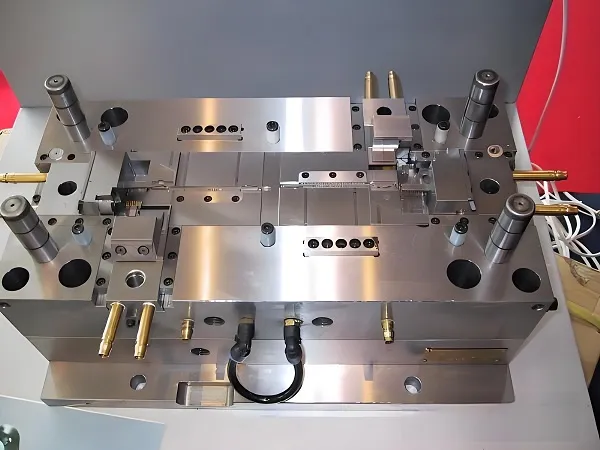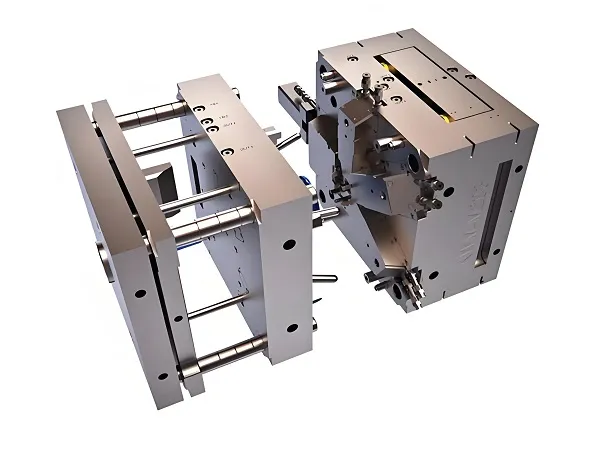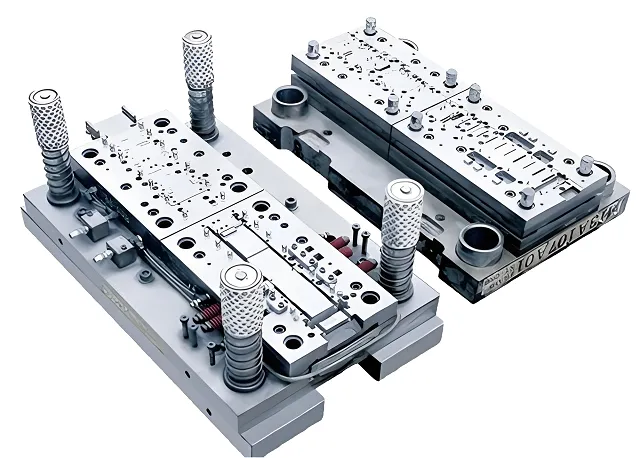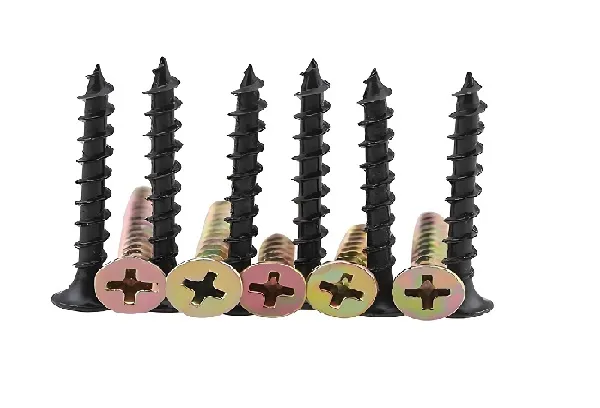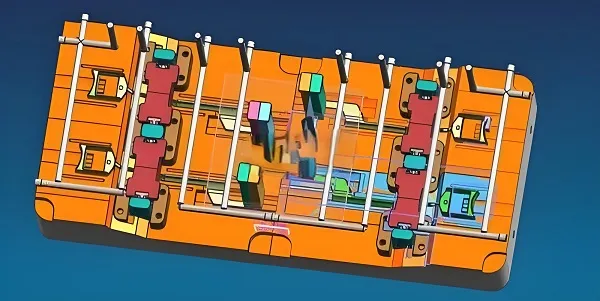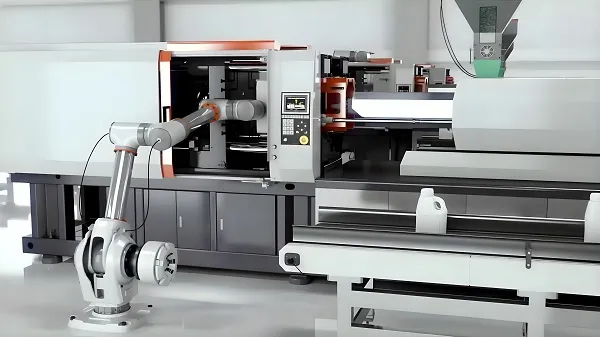CNC beverage bottle molds are molds that are precisely manufactured according to the specific shape and size requirements of beverage bottles using advanced CNC processing technology. This kind of mold has the features of high precision, high efficiency and high durability, which is widely used in the mass production of beverage bottles.CNC technology ensures that every detail of the mold meets the design requirements, thus producing high quality beverage bottles.
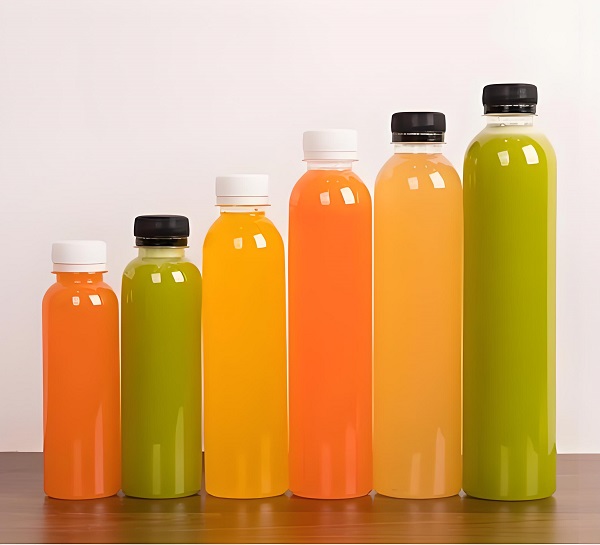
1. CNC beverage bottle mold production process
1.1 Design stage
Demand analysis: According to the customer’s demand, determine the size, shape, capacity and other parameters of the beverage bottle.
Three-dimensional modeling: use CAD (computer-aided design) software to establish a three-dimensional model of the beverage bottle according to the results of the demand analysis.
Mold design: Based on the 3D model, design the matching mold structure, including parting surface, gate, cooling system, etc.
1.2 Manufacturing preparation stage
Material selection: according to the use requirements of the mold, select the appropriate mold material, such as steel, aluminum alloy or copper alloy.
Material treatment: Pre-treatment of the selected material such as heat treatment, cutting, etc. to improve the performance of the material.
1.3 Processing Stage
CNC programming: Convert the 3D model of the mold into a machining program recognizable by the CNC machine tool.
CNC machining: Use CNC machine tools to precisely process the mold material according to the machining program, including milling, drilling, slotting, etc.
1.4 Assembly and debugging stage
Mold assembly: assemble the processed mold parts to form a complete mold.
Debugging and optimization: debug the assembled mold to ensure that the precision and performance of the mold meet the production requirements.
1.5 Delivery stage
Quality inspection: carry out comprehensive quality inspection on the mold to ensure that the mold is free from defects.
Customer acceptance: Deliver the qualified molds to customers and provide necessary technical support and after-sales service.
2. CNC beverage bottle mold processing steps
Rough machining: Remove most of the allowance of the mold material to form the basic shape of the mold.
Semi-finishing: further refine the shape and size of the mold, improve the precision of the mold.
Finishing: Fine processing of the mold to ensure that every detail of the mold meets the design requirements.
Surface treatment: Polishing, sandblasting and other surface treatment for the mold to improve the surface quality and durability of the mold.
3. Customized CNC beverage bottle mold service
Individualized design: Provide individualized mold design solution according to customer’s demand.
Quick Response: Respond quickly to customer’s demand, shorten the cycle of mold design and manufacturing.
Quality Assurance: Strictly control the manufacturing process of the mold to ensure the quality of the mold.
After-sales service: provide perfect after-sales service, including installation, debugging and maintenance of the mold.
4. Material for making CNC beverage bottle mold
Steel: Ordinary carbon steel, alloy tool steel, high-speed steel, etc.
High strength: able to withstand greater pressure and impact.
Good abrasion resistance: not easy to wear and tear for long-term use.
Good processing performance: easy to carry out a variety of mechanical processing.
Aluminum alloy: lightweight, corrosion resistance.
Lightweight: reduce the weight of the mold, easy to operate.
Corrosion resistance: good resistance to a variety of chemical substances.
Good thermal conductivity: helps cooling and heat dissipation of the mold.
Copper alloy: Good thermal conductivity and electrical conductivity.
Excellent thermal conductivity: for molds that require rapid heat dissipation.
Strong electrical conductivity: can be used for molds that require electrical conductivity.
Higher price: generally used in the manufacture of high-end molds.
5. CNC beverage bottle mold processable materials
ABS: acrylonitrile-butadiene-styrene copolymer.
Easy to process: has good processing performance.
Impact resistance: has a certain degree of impact resistance.
Low cost: relatively low price.
PC: Polycarbonate.
High toughness: excellent toughness.
High impact strength: able to withstand large impacts.
Transparent and colorless: suitable for beverage bottles that require transparency.
POM: Polyoxymethylene.
High tensile strength: has high tensile strength.
Impact resistance: good resistance to impact.
Good chemical stability: good stability to many kinds of chemical substances.
6. CNC beverage bottle mold processing technology
CNC programming: using CAD/CAM software, the three-dimensional model of the mold is converted into a CNC machine tool recognizable processing procedures.
Rough machining: using a larger amount of cutting and cutting speed to remove most of the allowance of the mold material.
Semi-finishing: further refine the shape and size of the mold to improve the accuracy of the mold.
Finishing: Adopting smaller cutting volume and cutting speed, the mold is finely processed to ensure that every detail of the mold meets the design requirements.
Heat treatment: Heat treatment of the mold to improve the hardness and wear resistance of the mold.
Surface treatment: Polishing, sandblasting and other surface treatment for the mold to improve the surface quality and durability of the mold.
CNC beverage bottle mold production equipment
CNC milling machine: for roughing, semi-finishing and finishing of the mold.
CNC Lathe: for thread processing and rotary body processing of molds.
EDM machine: for complex shape machining and micro-hole machining of molds.
Wire Cutting Machine: for precision cutting and slotting of molds.
Grinding machine: for grinding and polishing of molds.
Customized CNC beverage bottle mold service FAQ
Q: How long does it take to customize CNC beverage bottle mold?
A: The customization time depends on the complexity of the mold and customer’s requirement, usually it takes weeks to months from design to delivery.
Q: How do you guarantee the quality of the customized molds?
A: We ensure the quality of our molds through strict quality control processes, including material selection, process monitoring, and quality testing.
Q: What is the life span of a mold?
A: The life span of a mold depends on a variety of factors, such as material selection, processing accuracy, and usage conditions. Generally speaking, reasonable use and maintenance of the mold can last for several years or even longer.
Q: Do you provide after-sales service?
A: Yes, we provide perfect after-sales service, including mold installation, debugging, maintenance, etc., to ensure that customers have no worries in the process of using.

